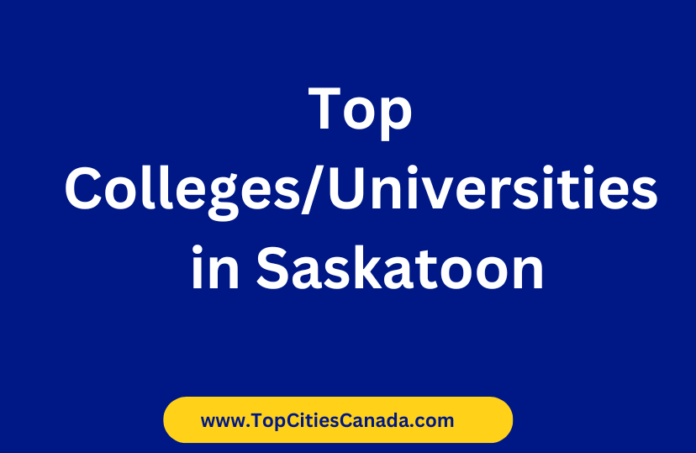Saskatoon, the largest city in Saskatchewan, is one of Canada’s most welcoming and affordable destinations for higher education. Known for its friendly community, strong academic institutions, and growing economy, the city attracts students from across Canada and around the world.
With excellent universities, career-focused colleges, and a high quality of life, Saskatoon offers an ideal environment for students seeking strong academics, hands-on learning, and future career opportunities.
Below is a detailed look at the best colleges and universities in Saskatoon and what makes each of them stand out.
1. University of Saskatchewan (USask)
The University of Saskatchewan (USask) is the largest and most prestigious institution in the province. Founded in 1907, it is internationally recognized for its research excellence and academic quality.
Why Choose USask?
One of Canada’s top research universities
Home to the Canadian Light Source, one of the world’s leading synchrotron research facilities
Strong programs in medicine, engineering, agriculture, environmental science, business, and veterinary medicine
Over 130 countries represented in the student population
The university’s beautiful campus, modern facilities, and strong industry partnerships make it a top choice for students seeking both academic excellence and career readiness.
2. Saskatchewan Polytechnic (Sask Polytech) – Saskatoon Campus
Saskatchewan Polytechnic is one of Canada’s leading institutions for applied and technical education. Its Saskatoon campus offers hands-on training designed to prepare students for immediate employment.
Key Highlights:
Programs in healthcare, engineering technology, business, IT, and skilled trades
Industry-aligned curriculum with co-op placements and applied learning
Modern labs and real-world training environments
Sask Polytech is especially popular for its strong job placement rates and close partnerships with employers across Saskatchewan.
3. St. Thomas More College (STM)
St. Thomas More College is a federated college of the University of Saskatchewan, offering a smaller, community-focused learning environment.
What Makes STM Unique:
Emphasis on liberal arts, humanities, and social sciences
Small class sizes and personalized instruction
Strong sense of community and academic mentorship
Students earn University of Saskatchewan degrees while enjoying a close-knit campus experience that encourages critical thinking and leadership.
4. Briercrest College – Saskatoon Programs
Briercrest College offers select programs in Saskatoon through partnerships and extension learning opportunities.
Key Areas of Study:
Christian studies
Leadership and community development
Education and humanities
Briercrest is known for its values-based education, supportive learning environment, and flexible study options, making it ideal for students seeking faith-integrated learning.
5. Great Plains College (Near Saskatoon)
Located near Saskatoon in Warman, Great Plains College offers career-focused education designed to meet workforce needs.
Programs Offered:
Business and office administration
Health care and early childhood education
Trades, safety training, and adult basic education
With small class sizes and strong instructor support, Great Plains College is an excellent choice for practical, job-ready education.
Why Study in Saskatoon?
– Affordable cost of living compared to larger Canadian cities
– Safe, friendly, and welcoming community
– Strong employment opportunities in healthcare, agriculture, and technology
– Access to quality education and research facilities
– Balanced lifestyle with nature, culture, and modern amenities
Final Thoughts
Saskatoon stands out as one of Canada’s best cities for students seeking quality education, career opportunities, and a supportive environment. From world-class research at the University of Saskatchewan to hands-on training at Saskatchewan Polytechnic and community-based learning at local colleges, students have a wide range of choices.
Whether you’re planning to pursue academic excellence, technical skills, or professional growth, Saskatoon offers the perfect foundation for your future success.










